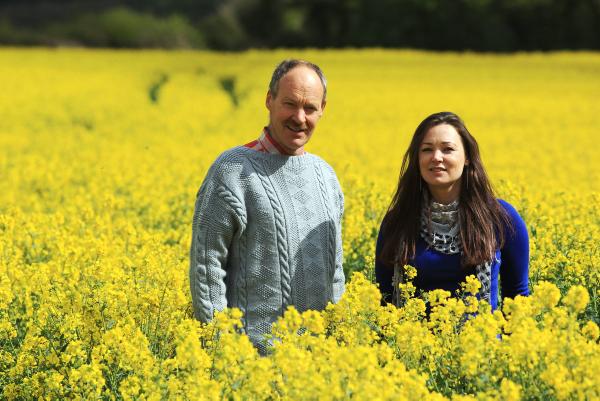Kitty Colchester grew up on her family’s farm in Urlingford, Co Kilkenny, but never thought she would end up in farming and food production herself.
After working in sales, Kitty decided to volunteer for a year in Ethiopia at refugee and food camps. Her time in Africa opened her eyes to a career in sustainable food development and she began to look into potentially viable products.
“When I returned from Ethiopia at the end of 2008, I started researching and realised that there was no Irish organic rapeseed oil,” she says.
Her father, an organic beef and lamb farmer, grew rapeseed to make expeller cakes, a high-protein animal feed.
“I had lived in Europe and enjoyed rapeseed oil, so I carried out a feasibility study, started packaging it, went to the farmers’ markets and gave a bottle to Darina Allen. It all kicked off from there,” she says.
Second Nature Oils, the first organic rapeseed oil in Ireland, was launched in 2009.
“My parents have always been involved in organic farming and, initially, the Organic Trust headquarters was on our farm, so as I grew up I was immersed in the organic ethos.
“The thing with growing organically compared with conventionally, is forward planning – you must work a rotation system, rotating the crop every five years, because when you have healthy soil, you have a healthy product,” she explains.
“If someone said seven years ago that I would be living at home, farming and making a food product, I would have said no way, but I love it now,” says Kitty. “Starting a business in a recession is a double-edged sword, it was tough but the support I have received has been phenomenal,” she says. The seeds are cold pressed on the farm, which is more expensive but it means the oil is more nutritious.
“Organic farming is a niche market, but there are a certain amount of people out there who want premium oil,” she explains.
Like on any farm, the weather can create difficulties, but it has even more impact when farming organically.
“Although the weather was fabulous this summer, I lost a crop to slugs with the wet spring and have also lost a lot to birds.”
“That is the problem when trying to keep a sustainable system without herbicides and pesticides – it’s Russian roulette.” CL






 This is a subscriber-only article
This is a subscriber-only article





SHARING OPTIONS: